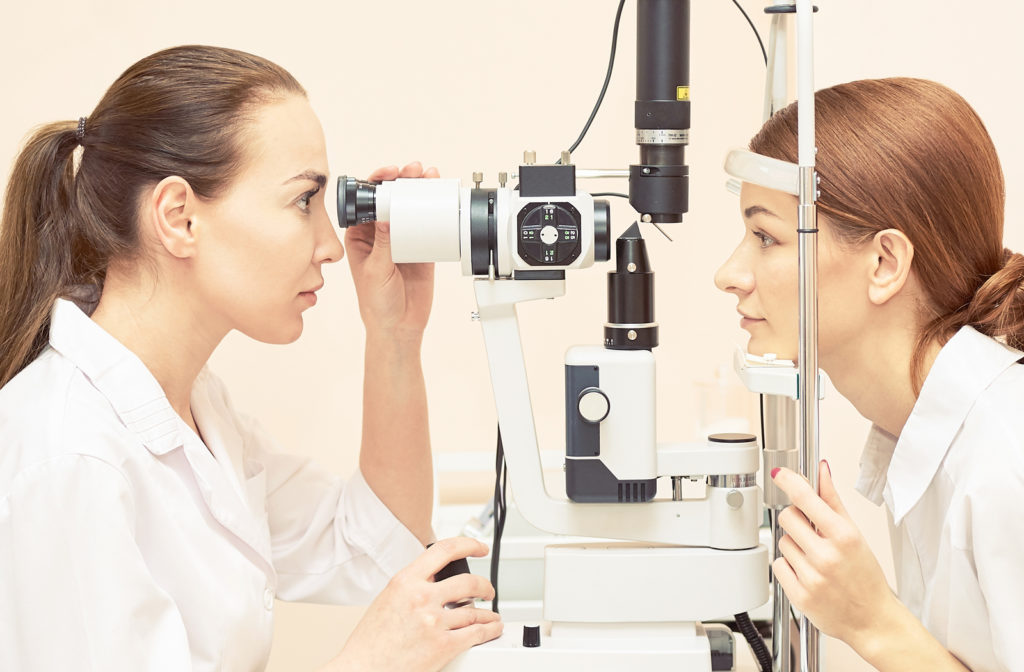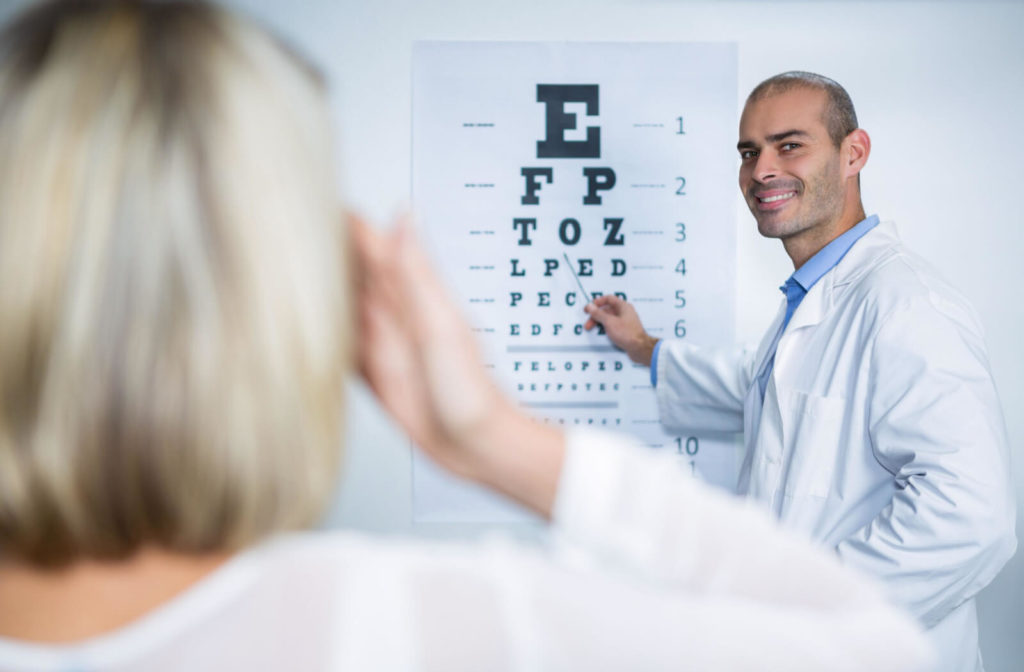Skilled Optometrist for Comprehensive Eye Tests
Skilled Optometrist for Comprehensive Eye Tests
Blog Article
The Importance of Routine Eye Exams: Insights From a Seasoned Ophthalmologist
Normal eye tests serve as an essential element of health care that prolongs past plain vision correction. A seasoned eye medical professional can offer understandings right into how these analyses not just find usual eye conditions yet additionally reveal underlying health problems that may or else go unnoticed.
Advantages of Regular Eye Exams
Although several people might forget the value of regular eye tests, these assessments play an essential role in preserving overall wellness and well-being. Routine eye evaluations offer not just to examine vision but likewise to find very early indicators of systemic wellness concerns, including diabetes and hypertension. By identifying these problems at their inception, clients can get prompt treatments, considerably enhancing long-term results.
In addition, eye examinations can help in checking existing health issues, ensuring that any kind of modifications in vision or eye health are immediately attended to (optometrist). The assessments permit customized suggestions pertaining to eyewear, way of living changes, and protective steps against potential eye stress or damages
Beyond physical health and wellness, the advantages of routine eye tests encompass boosting lifestyle. Enhanced vision facilitates far better performance in daily activities, from reading to driving, consequently contributing to greater independence and safety. Ultimately, focusing on eye examinations fosters a positive approach to wellness management, encouraging people to organize their wellness. Routine exams are a necessary component of an extensive health care approach, ensuring that both vision and total health are protected throughout life.
Common Eye Conditions Detected
Normal eye examinations contribute in finding a selection of usual eye conditions that can considerably affect vision and overall wellness. Among one of the most widespread conditions identified during these examinations are refractive mistakes, including myopia (nearsightedness), hyperopia (farsightedness), and astigmatism. These problems typically show up as obscured vision and can be quickly fixed with prescription glasses or call lenses.
Additionally, cataracts, which cause clouding of the lens, are frequently detected in older grownups. This problem can bring about decreased vision and calls for surgical treatment for resolution. An additional usual problem is glaucoma, a group of eye illness that damage the optic nerve, usually connected to enhanced intraocular pressure. Early discovery is crucial as it can stop irreparable vision loss.
Age-related macular degeneration (AMD) is one more substantial condition that influences main vision, specifically in individuals over 50. Lastly, diabetic retinopathy, an issue of diabetes mellitus, can bring about severe vision problems otherwise kept an eye on routinely. With detailed eye tests, these problems can be identified early, allowing for timely administration and therapy to maintain vision and enhance top quality of life.
Relevance of Very Early Discovery
Early discovery of eye problems plays an essential role in preserving vision and avoiding substantial wellness problems. Several eye diseases, such as glaucoma, diabetic retinopathy, and age-related macular deterioration, can advance quietly without noticeable symptoms in their onset. By the time signs and symptoms show up, irreversible damage might have taken place, leading to long-term vision loss.
Routine eye exams promote very early diagnosis, enabling timely treatment and therapy. For circumstances, treating elevated intraocular stress can protect against the onset of glaucoma, while handling blood glucose degrees can substantially lower the threat of diabetic person retinopathy. Furthermore, problems like cataracts can be successfully handled with medical intervention when recognized early.

How Frequently Should You See?
Establishing the frequency of eye exams is essential for preserving optimal eye health and wellness and vision. The general referral for adults is to have a detailed eye exam every one to two years, depending upon private threat variables and age. For people aged 18 to 60, an examination every two years is typically enough if no vision issues are present. However, those over 60 must consider annual tests, as the danger of age-related conditions boosts significantly.
Individuals with certain risk variables, such as a household background of eye disease, diabetes, or existing vision troubles, may require more frequent examinations. Youngsters must have their very first eye examination at 6 months old, complied with by extra examinations at age 3 and prior to entering school. Regular exams during youth are critical as vision can change swiftly throughout developing years.
Inevitably, the regularity of gos to need to be customized per individual's scenarios, including way of life, job-related dangers, and any kind of pre-existing eye conditions. Consulting with an eye treatment expert can give personalized suggestions, making sure that your eye wellness is regularly kept track of and maintained.
Tips for Your Eye Examination
Getting ready for your eye test can enhance the effectiveness of the see and make sure a detailed evaluation of your eye health and wellness. To right here maximize your time with the eye physician, it is essential to collect pertinent info prior to your visit. Beginning by compiling a listing of any type of drugs you are presently taking, consisting of over the counter medications and supplements, as these can affect eye health and wellness.
Additionally, document any type of signs you have experienced, such as obscured vision, discomfort, or frustrations. This details will aid your eye physician in diagnosing possible issues. If you put on glasses or get in touch with lenses, bring them along, even if you don't use them regularly. This will assist the physician assess any type of changes in your vision. this link
It is additionally valuable to have a family members background of eye problems at hand, as hereditary variables can add to your eye health. Ultimately, take into consideration arranging your test temporarily when you are less rushed, enabling you to ask questions and review your problems thoroughly. By preparing properly, you make certain that your eye examination is productive and that your optometrist has all the necessary details to supply the most effective care feasible.

Final Thought
Regular eye exams play a crucial function in keeping both vision and general health. Eventually, prioritizing extensive eye assessments adds significantly to the preservation of vision and the renovation of high quality of life, highlighting the necessity of routine eye care in preventative medical care techniques.
Normal eye exams are important in spotting a range of usual eye problems that can dramatically affect vision and overall health.Identifying the frequency of eye exams is important for preserving optimum eye wellness and vision.Preparing for your eye examination can enhance the performance of the see and guarantee a complete assessment of your eye health and wellness (optometrist). By preparing adequately, you ensure that your eye test is effective and that your eye doctor has all the required info to supply the finest care possible
Inevitably, prioritizing comprehensive eye analyses adds substantially his explanation to the conservation of vision and the renovation of high quality of life, highlighting the necessity of routine eye treatment in preventative medical care approaches.
Report this page